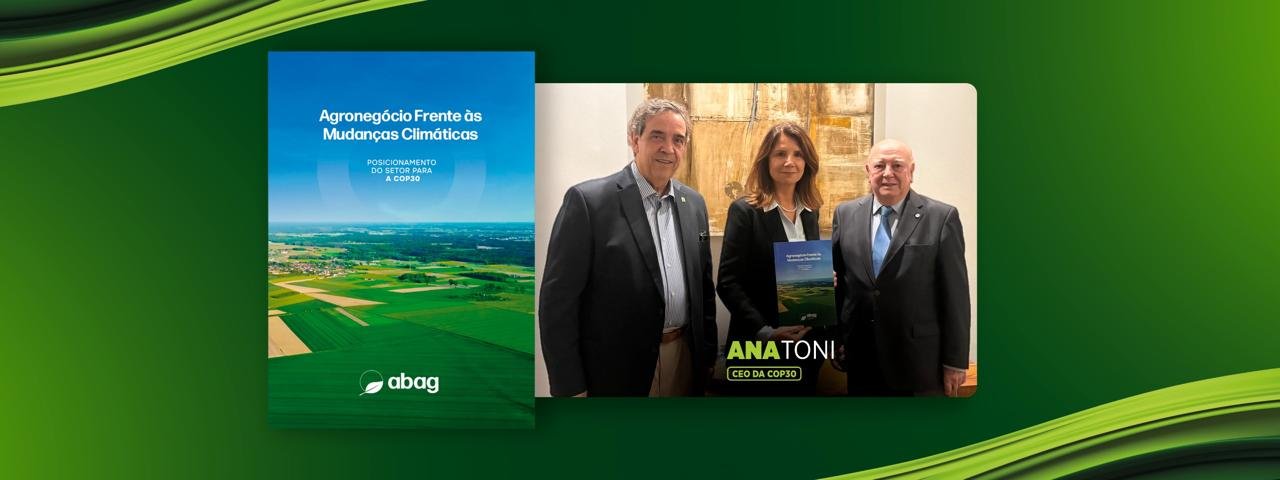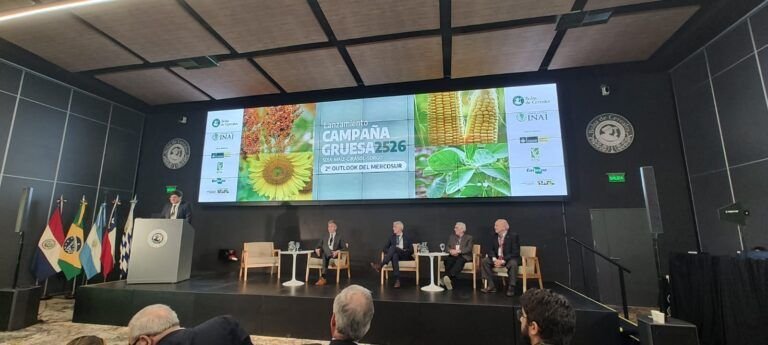In preparation for COP30, to be held in Belém in November 2025, ABAG organized the forum "Towards COP30: Agribusiness and Climate Change," which brought together diverse voices with different perspectives around three central questions:
a- How can agriculture contribute to the climate change adaptation and mitigation agenda?
b- How can we free up financing for the agricultural sector?
c- How does agribusiness relate to the carbon market?
As a result of the discussions, a document was prepared that compiles the main conclusions and contributions of the participants and highlights how the agricultural sector can be an agent of transformation in the climate change adaptation and mitigation agenda.
It addresses strategies for unlocking climate finance and explores solutions that expand access to financial resources and drive sustainable innovation. The document explores how the sector can effectively integrate into carbon credit trading, contributing to a low-carbon global economy.
Se detallan estrategias clave para la adaptación eficaz en los agrosistemas tropicales, como el aumento de la eficiencia en el uso de la tierra, la mejora de la eficiencia en el uso de los recursos hídricos y los nutrientes y se indica que Brasil ha implementado políticas públicas para mitigar las emisiones de GEI, como el Plan Nacional de Adaptación al Cambio Climático (PNAMC) y el Plan ABC+ 3.
The document's main conclusions show that the Brazilian agricultural sector plays a strategic role in the global climate agenda, particularly in climate change mitigation and adaptation. It highlights that agribusiness can contribute to reducing greenhouse gas emissions through sustainable practices, carbon sequestration, and the development of innovative technologies. Furthermore, it underscores the importance of strengthening climate finance and expanding the sector's capacity to access international resources and carbon credits. To this end, the development of robust metrics and indicators to assess its mitigation and adaptation results is essential.
For the opportunities and benefits associated with generating carbon credits to be effectively realized, it is essential to consider the local specificities of the territories where the projects will be implemented. One of the main obstacles to the expansion of this market in the country is the lack of methodologies and metrics truly adapted to the Brazilian tropical reality.
The document emphasizes that the effective integration of the sector into the carbon market, along with appropriate public policies and the adoption of sustainable practices, are key to positioning Brazil as a relevant player in the fight against climate change, promoting sustainable and resilient development in accordance with international commitments, such as the Paris Agreement and COP30.
The document's main recommendations emphasize the need to strengthen the integration of the agricultural sector into climate finance policies and mechanisms, in addition to promoting sustainable practices that facilitate climate change mitigation and adaptation. Specifically, the following recommendations are made:
- Increase investment and mobilization of financial resources: Expand climate finance from a variety of sources, including international mechanisms, to support the transition to sustainable and competitive agriculture and livestock.
- Develop and implement robust measurement, reporting, and verification (MRV) metrics to assess mitigation and adaptation outcomes, enabling better targeting of investments and ensuring legal certainty for producers and investors.
- Promote the inclusion of the agricultural sector in the carbon market: encourage the creation and expansion of carbon credits linked to regenerative and sustainable practices, ensuring that these translate into economic benefits for producers.
- Promote specific public policies and programs, such as the ABC+ Plan and genetic improvement programs, that facilitate the adoption of resilient and sustainable practices in the sector.
- Implement Payment for Environmental Services (PES) instruments and promote economic incentives to restore and protect ecosystems, biodiversity, and water resources, thus integrating carbon and biodiversity benefits into financing.
- Strengthen cooperation between the government, the private sector, and international financial institutions to raise funds and facilitate access to financing for producers of all sizes.
These recommendations aim to consolidate Brazil's position as a leading example of low-emission agriculture, generating environmental sustainability, food security, and responsible economic development.



